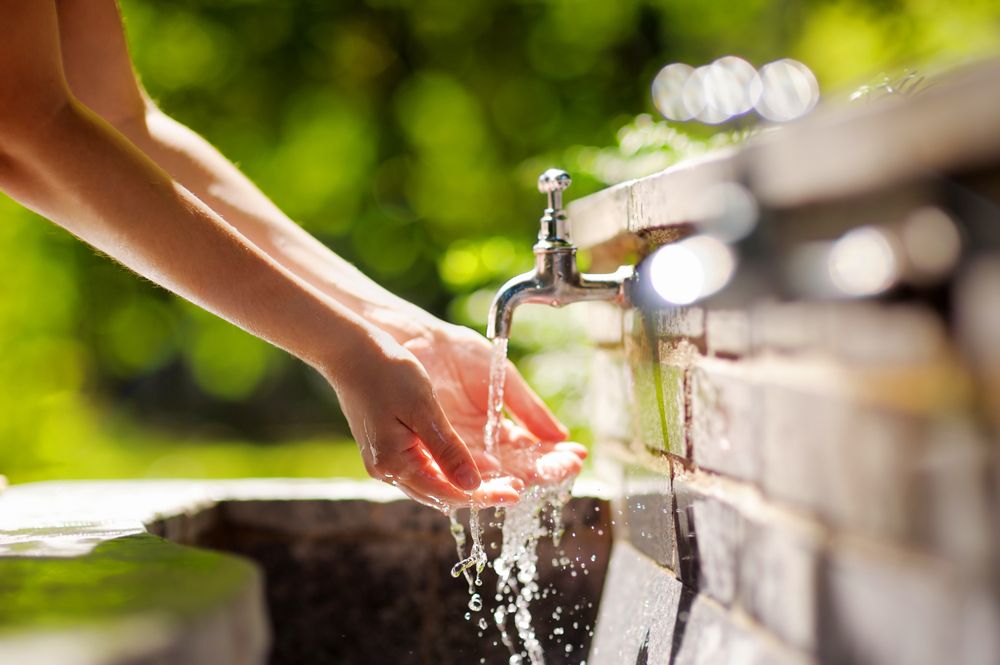According to the Environmental Protection Agency (EPA), around 90% of U.S. households use “city” water systems regulated by the EPA, while 13 million households rely on unregulated water from private wells. Because residents are responsible for keeping track of the safety and sanitation of their well water, it is important to know whether your water comes from a well or the city when buying a home.
While both water sources have routinely provided clean running water to American homes for years, many people have their own personal preference to which type of water they use to drink, bathe, and clean. Based on regional upbringing and tradition, such strong stances on one water type have led many people to adopt opinions, suspicions, and misconceptions about the other. To help you pick the best option for your family and home, take a look at are the pros and cons of city water and well water.
City Water
The city water supplied to households is collected by the city in water reservoirs such as dams. Before being pumped into homes, the water is first passed through a purification process. Here are some of the pros and cons of city water.
Pros:
- The city is responsible for the quality and quantity of water. This factor is the main reason why many people prefer city water.
- City water is readily available in most places. Unless you live in a remote and rural area, the water in your home is most likely city water.
- Because wells are more unpredictable compared to city water, mortgage lenders offer superior rates for city water homes.
Cons:
- City water tastes less fresh than well water. This phenomenon is because city water is collected from runoffs, and extreme filtering and chemical treatment can result in a change of taste.
- City water can be expensive. Recently, water bills have been on the rise. After all, having someone else manage the quality and quantity of your water comes with a price.
- City water can be shut off. Failure to pay your bills on time will result in your water supply being cut.
Well Water
Households with well water get all the water used for cleaning, drinking, and bathing from a privately owned well on the property. A well is built by drilling underground to access the aquifer. Once reached, that water is pumped into the home. Here are some of the pros and cons of well water.
Pros:
- Well water contains higher nutrient and mineral concentration.
- There are no water bills.
- Well water is protected from contaminations in case of a natural disaster.
Cons:
- Pumping the water requires electricity.
- You are responsible for the quality and quantity of the water in the well — that includes repair costs and additional drilling charges.
- Due to seepage, well water can be at risk of contamination by pollutants such as the chemicals you use on your lawn. However, this can be remedied by regularly testing your water for contaminants or using a house water filter that ensures your water is fresh and healthy.
Drink Well With Domer’s
We all need clean and healthy water to live. If you have decided that well water is the best option for your household or if you already have a well on your property that requires servicing, please contact the professionals at Domer’s Inc. Experienced in the drilling, repair, and maintenance of wells throughout South Florida, we are prepared and ready to help get your water flowing. For more information about our high-quality and reliable services, give us a call today at 863-763-3417.
Domer's Inc.
204 SE 10th AvenueOkeechobee, FL 34974
Get Customized Directions Here
Tel: (863) 763-3417
Fax: (863) 763-7339
Email: [email protected]
Business Hours:
M-F 7:30am - 5:00pm
Closed Weekends
Emergency Service
Available 24/7
 Follow Us on Facebook
Follow Us on Facebook


